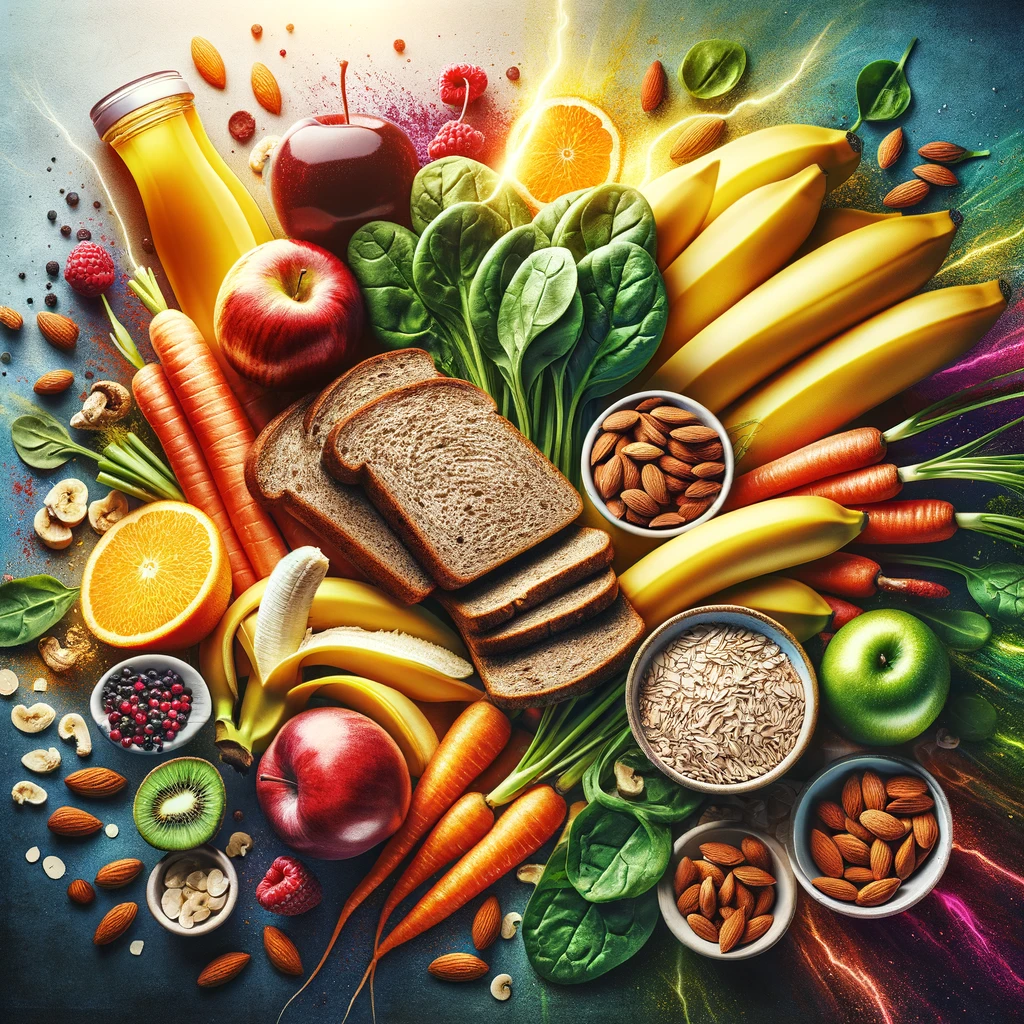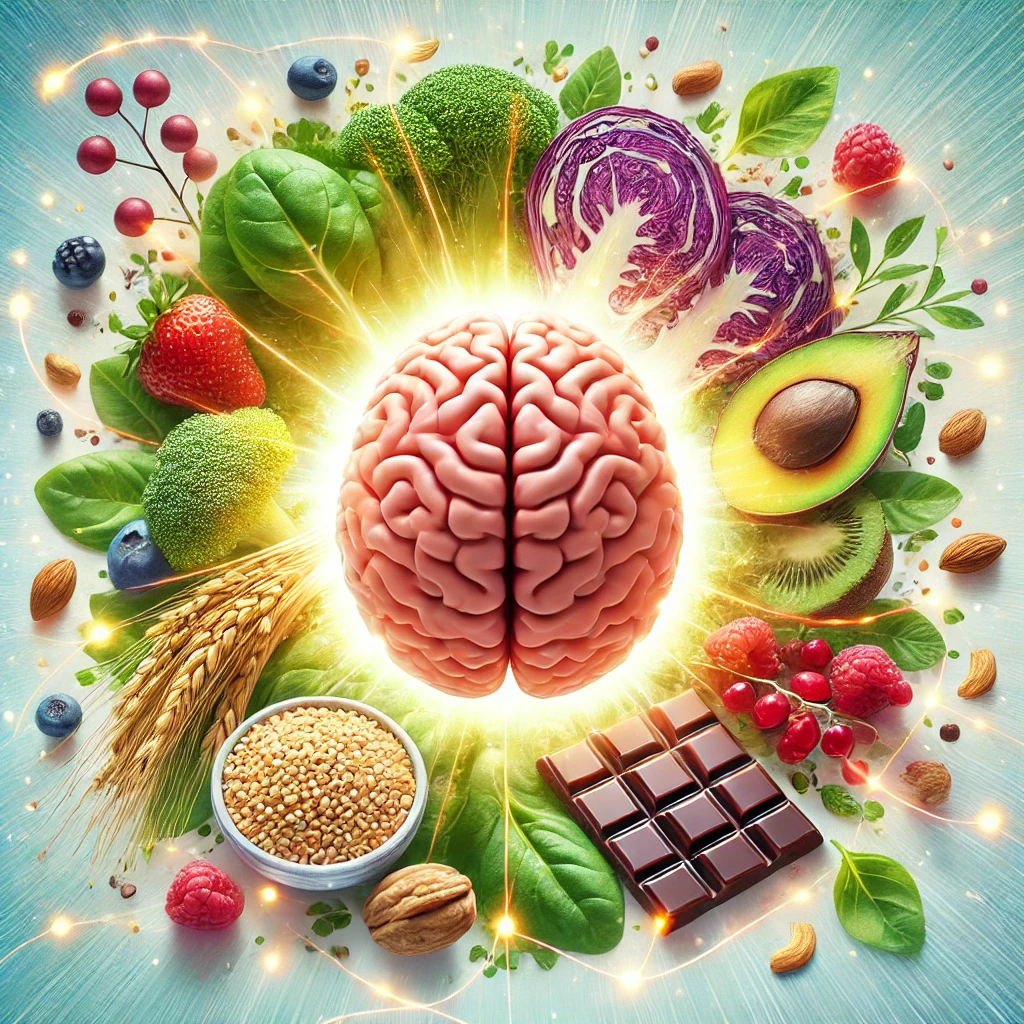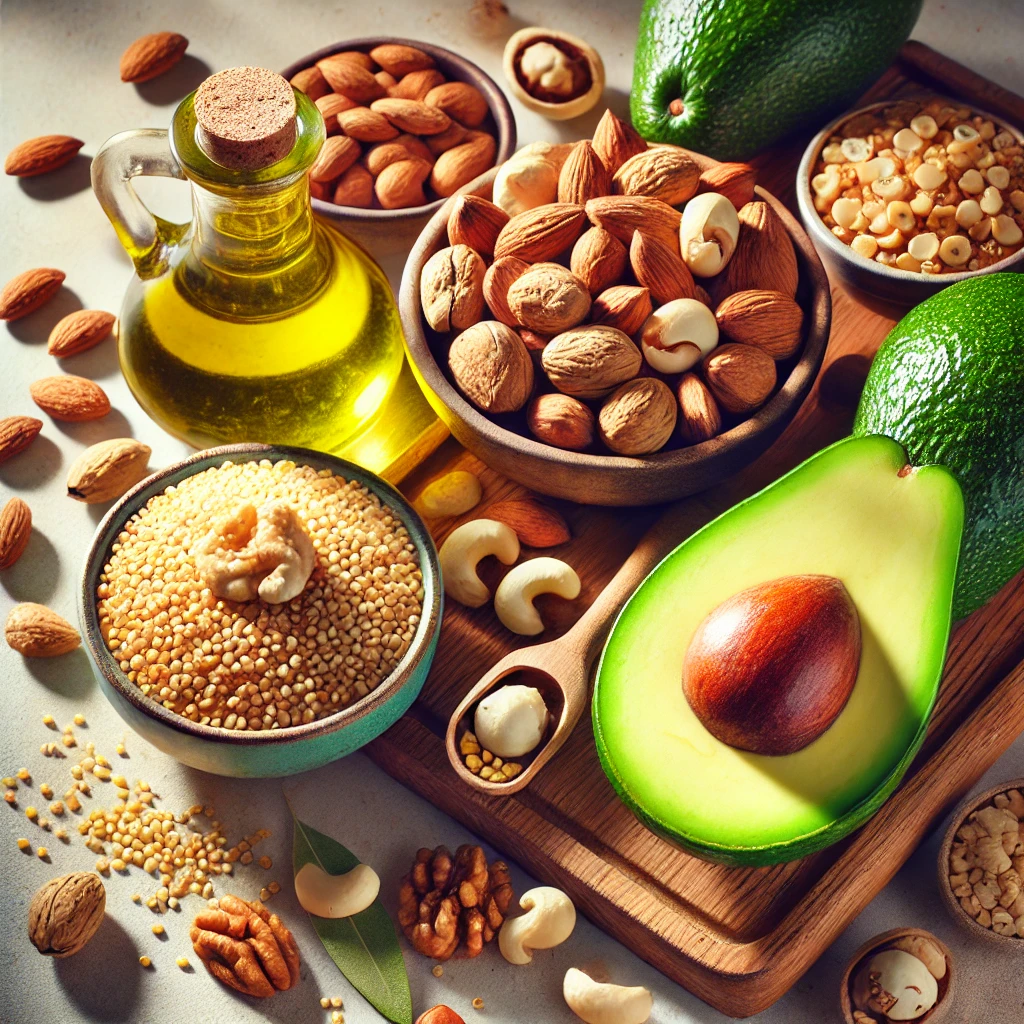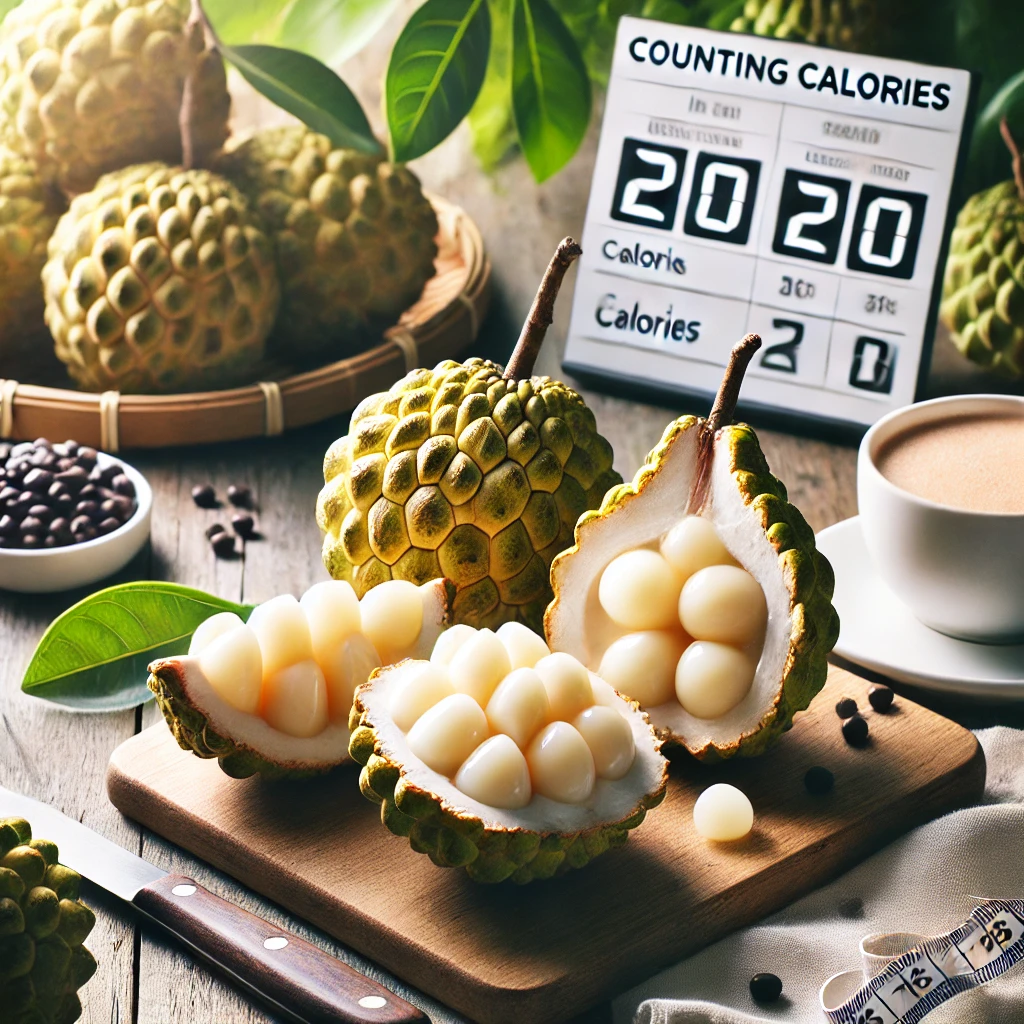The Best Foods for Sustained Energy During Exercise
Ever felt like you’re running on empty halfway through your workout? We’ve all been there. Good news, though! The right foods can keep your energy tank full and help you power through any workout routine. Let’s dive into some of the best foods to keep you energized and ready to tackle those fitness goals.
Carbs Are Your Friends
Yes, despite what you may have heard, carbohydrates are a gym-goer’s best friend. They’re your body’s preferred energy source during high-intensity workouts. But not all carbs are created equal. To avoid quick spikes and sudden crashes, focus on complex carbohydrates that release energy slowly.
Whole grains like oats are perfect for a pre-workout breakfast. Cook up some oatmeal or grab an oat-based granola bar for that slow-release energy that lasts. Sweet potatoes are another powerhouse, packed with vitamins and minerals. Roast or mash them for a meal a few hours before you hit the gym. Lastly, don’t overlook bananas. They’re not only rich in carbohydrates but also potassium, which helps maintain muscle function while you exercise.
Protein Packs a Punch
While carbs fuel your workout, proteins are there to help you recover. But did you know that including a little protein before you exercise can extend your endurance? That’s right, a combo of carbs and protein can provide sustained energy, as protein helps slow down the absorption of carbs, keeping your energy levels stable.
Chicken breast or a slice of turkey are lean and mean sources of protein that won’t weigh you down. Vegetarian? No problem. Chickpeas or a handful of almonds can do the trick just as well. These proteins are not just filling; they also provide the necessary amino acids your muscles crave during a workout.
Don’t Forget the Fats
Fats might take longer to digest, but they’re excellent for sustained energy, especially for longer, less intense workouts like hiking or jogging. But here’s the kicker: you have to choose the right fats.
Avocados are a top choice for a dose of healthy fats. Spread some on whole-grain toast for a delicious pre-workout snack. Nuts and seeds, like walnuts and flaxseeds, are also stellar options, providing you with omega-3 fatty acids that fight inflammation caused by intense workouts.
Hydration: The Energy Essential
No matter what you eat, if you’re not hydrated, your energy levels can plummet, making your workout feel tougher than it is. Water is crucial for optimal performance, as it helps transport nutrients in your blood that fuel your muscles.
Always drink plenty of water before, during, and after exercise to maintain your energy. Not a fan of plain water? Add a splash of lemon or a few cucumber slices to jazz things up. And if you’re exercising for more than an hour, consider a sports drink to replace electrolytes you lose through sweat.
Timing Is Everything
It’s not just what you eat; it’s also when you eat it. Timing your meals and snacks can be the difference between a sluggish workout and a fantastic one. A good rule of thumb is to eat a larger meal about three to four hours before exercising and a small snack about an hour beforehand. This gives your body time to digest and convert food into usable energy.
Listen to Your Body
Everyone’s different, so the best way to figure out what works for you is to listen to your body. Experiment with different foods and timings to find your perfect pre-workout meal. And remember, what you eat after your workout is just as important for recovery!
Timing Your Meals for Optimal Performance
Ever wondered why you feel like a sloth on the treadmill sometimes? It might just be about when you last ate! Timing your meals correctly can seriously boost your workout effectiveness and make you feel unstoppable. Let’s break down how you can time your meals to align perfectly with your exercise schedule.
The Big Picture: Why Meal Timing Matters
Meal timing is like scheduling fuel stops for a race car—it ensures you have the energy to go full throttle without sputtering to a halt. Eating at the right times helps manage your blood sugar levels, keeping you energized and focused throughout your workout. Plus, it prevents the dreaded stomach cramps that can happen if you eat too much, too close to exercise time.
Pre-Workout: Fuel Up to Power Up
Aiming for a great workout? Then, think of your pre-workout meal as your launch pad. This meal should ideally be eaten about two to three hours before you start exercising. It’s your body’s last chance to get a good mix of carbs and protein before you hit the gym.
Carbs are your friend here because they break down into glucose, your muscles’ primary energy source during workouts. But pair them with proteins to slow digestion a bit, which helps prevent a blood sugar spike and crash. A turkey and cheese sandwich on whole-grain bread, or yogurt with berries and granola, are perfect examples of a balanced pre-workout meal.
If you’re squeezed for time and only have 30 minutes before your session, opt for a small, easily digestible snack like a banana or a granola bar. Just enough to wake up your metabolism, not enough to start a digestive party.
During Workout: Keep the Engine Running
If you’re in for a long workout (we’re talking more than an hour), you might need a little something to keep going. This is where easy-to-digest carbs come into play. Sipping on a sports drink or munching on a few energy chews can replenish your glycogen stores and keep your energy levels steady.
Post-Workout: Refuel and Recover
After you’ve sweated it out, your body’s ready to refuel and start repairing those muscles. Within 45 minutes to an hour after your workout, try to eat a meal that includes both protein and carbs. The carbs help replenish the glycogen stores you’ve depleted, and the protein kicks start the muscle recovery process.
A plate of grilled chicken with quinoa and veggies, or a smoothie with fruit and a scoop of protein powder, should do the trick. This isn’t just about building muscle—it’s about recovering fast enough to feel great for your next workout.
Listen to Your Body: Everyone’s Different
Here’s the thing: while these tips are a great starting point, everyone’s body reacts differently. Some might find they need more or less time between eating and exercising. Pay attention to how you feel during different workouts and adjust your timing as needed. It’s all about finding what makes you feel like a superhero in your training sessions.
Supplements vs. Whole Foods: What’s Better for Energy?
Deciding between supplements and whole foods for energy is like choosing between a quick espresso shot or a full breakfast. Both have their perks, but which one will truly help you stay energized throughout the day? Let’s dive into the world of energy boosters and find out which might be the best fuel for your active lifestyle.
The Lowdown on Supplements
Supplements can be super tempting. They promise a quick fix of energy with minimal effort. Think of them as your energy “shortcut.” There are energy bars, powders, and pills that can give you a rapid boost, especially handy when you’re on the go or in a pinch.
However, it’s important to remember that supplements are just that—supplementary. They’re manufactured to fill in the nutritional gaps, not to replace real food. Plus, the energy they provide can be fleeting. Ever had that burst of energy from a pre-workout only to crash hard mid-session? That’s often because supplements can spike your blood sugar and then send it plummeting down.
And let’s talk about what’s in them. It’s crucial to read labels because some supplements can be loaded with sugar and artificial ingredients. Always check for trusted brands and quality ingredients. After all, you wouldn’t put just any fuel in a luxury car, right?
Why Whole Foods Win
Now, let’s champion whole foods. These are your fruits, veggies, grains, nuts, and seeds—all the natural goodies. Whole foods provide a complex array of nutrients, not just a quick dose of carbs or protein. They deliver fiber, vitamins, minerals, and antioxidants. All these components work together to release energy steadily, rather than all at once.
Eating whole foods can help you avoid the dreaded energy crash. Plus, they’re better for long-term health. Regularly consuming things like oats, almonds, spinach, and blueberries can improve your overall energy levels, not just during your workout but throughout your entire day.
And there’s something satisfying about crunching on an apple rather than downing a pill. It’s not just about the calories or energy; it’s about enjoying your food and feeling good about what you eat.
Balancing Both for Your Best Energy
So, should you ditch supplements altogether? Not necessarily. It’s about balance. Supplements can be great when you’re pressed for time or need a quick boost before a workout. They’re also helpful if you have specific nutritional gaps in your diet.
However, try to make whole foods the main source of your energy. Plan your meals to include a variety of nutrient-rich foods. Snack on nuts or fruits instead of always reaching for a bar or a shake.
If you do choose supplements, think of them as your plan B. Use them strategically, not habitually. And always aim for quality products that complement a diet rich in whole foods.
Easy Pre-Workout Snacks to Try Today
Ready to hit the gym but your stomach is rumbling? Don’t let hunger pangs derail your fitness goals. Here are some super easy pre-workout snacks that are not only delicious but also perfect for giving you a boost without weighing you down. Let’s munch our way to a better workout!
Quick Carbs for Quick Energy
Carbs are your body’s main source of energy, so having a snack rich in carbohydrates before you exercise can give you that much-needed boost. But don’t worry, you don’t need to cook up a pasta feast just before you hit the treadmill.
Bananas are nature’s power bar. They’re packed with potassium, which helps prevent muscle cramps and gives you quick energy. Just peel and eat; it’s that simple!
Dried fruit is another great option. Grab a handful of dried apricots, figs, or dates for a sweet, chewy treat that’s brimming with energy. Pair them with a small handful of nuts for added protein and a bit of fat, slowing down the energy release a bit for sustained stamina.
Protein Power
While carbs are great for a quick energy hit, adding some protein helps sustain your energy levels throughout your workout. Protein doesn’t have to mean meat; there are plenty of quick and easy options.
Greek yogurt is a powerhouse of protein and works well as a base for other ingredients. Mix in some honey and granola, or throw in a few berries for extra flavor and nutrients.
A hard-boiled egg is another excellent protein-rich snack that’s portable and easy to prepare ahead of time. Just sprinkle a little salt or paprika on top, and you’ve got yourself a tasty snack that’s also packed with nutrients.
Smoothies: Blend Your Way to Workout Success
If you’re someone who can’t stomach solid food before working out, or you’re just in a rush, smoothies are perfect. They’re quick to prepare, easy to digest, and super versatile.
Berry and banana smoothie: Blend together a banana, a handful of berries (fresh or frozen), a scoop of protein powder if you like, and a splash of almond milk or water. This drink is refreshing, hydrating, and energizing.
Green smoothie: If you’re feeling adventurous, throw some spinach or kale into your blender with an apple or a pear, a bit of ginger, and some lemon juice. It’s a nutrient-packed option that will keep your energy levels up and also help with hydration.
The No-Cook Wonder: Energy Balls
Energy balls are the ultimate no-fuss pre-workout snack. They’re super easy to make, delicious, and perfect for a quick energy boost. Here’s a simple recipe:
- Mix oats, peanut butter, honey, and some dried fruit or chocolate chips in a bowl.
- Roll the mixture into small balls.
- Refrigerate until firm.
Make these in advance, and you’ll always have a quick snack on hand that’s perfect before your workouts.
Snacking Smart Before Your Workout
Choosing the right pre-workout snacks can make a big difference in how you feel and perform during your exercise routine. Whether you prefer something sweet like fruit or a smoothie, or something a bit more savory like yogurt or eggs, the key is to find what works best for you. Experiment with different snacks, timings, and combinations to see what helps you feel your best during workouts. Remember, the goal is to fuel your body so you can hit those fitness targets with energy to spare. So snack on, stay energized, and smash those fitness goals!




